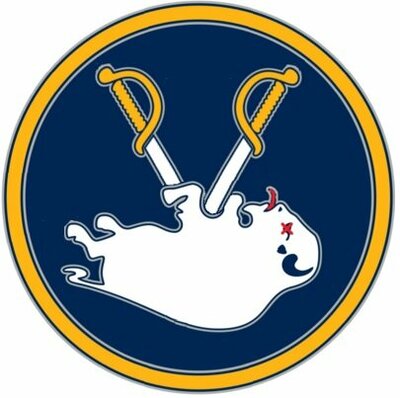-
Posts
9,215 -
Joined
-
Last visited
Content Type
Profiles
Forums
Events
Everything posted by carpandean
-
I haven't read a single post in it, but from the title, I would start here: (Note: I linked to Pg. 7, since the thread started in 2018, but the posts on pg 7 and 8 are from 2020.
-
In some cases, that might be true. However, in many cases, there are (or can be) some multiple of two number of classes (homerooms) per grade. So, you have half the homerooms' teachers there on M/Th and half on T/F. On their off days, they are teaching online. It gets harder with more specialized teachers in older grades.
-
A key part of these plans is that half the kids will be on one two-day pattern, while the other half will be on a different one. So, it will look like: Monday: Group A in school, Group B online Tuesday: Group A online, Group B in school Wednesday: Group A and B online, School cleaned heavily Thursday: Group A in school, Group B online Friday: Group A online, Group B in school This reduces the maximum number of students on buses, in school, etc, to half. Plus, it gives a good cleaning in between.
-
Note: Not my concepts. Some violate good practice "rules" (no words, no sticks, etc.)
-
-

SabreSpace Trade Proposal: Cozens and 8th for Cirelli
carpandean replied to sweetlou's topic in The Aud Club
My point was that we are in a stronger position now, with several key players (in particular, Jack) being more developed than they were then. It was too early to make those moves. Additionally, the O'Reilly trade (to bring him in) was a great trade on it own merits. It was the set of moves, in total, that Murray made, combined with Botterill trading the one piece from them that actually panned out for relatively little in return, that put us in the bad position. I agree that making lots of that type of move (as Murray did) is a bad idea. However, individual ones at the right time can have a big (positive) effect. If we can get a legit second-line center, who can effectively cover (not just fill in) that spot for 2-3 years until Cozens is really ready to take it, we'd be notably better off. -

SabreSpace Trade Proposal: Cozens and 8th for Cirelli
carpandean replied to sweetlou's topic in The Aud Club
Let me preface by saying that there's no way that I make the proposed trade, but ... There is a big difference between 2015 and now. Jack was literally just coming into the league, Sam was in just his second season and we had no Dahlin. Fast forward a few years and and that exact player was the biggest thing we were missing over the last two seasons, and will be again, if we don't bring someone in. Also, while it was too soon, the biggest problem was the number of moves made all at once. If you look at the O'Reilly trade in isolation, it would have hurt our prospect pool, but wouldn't have emptied the cupboard. -

COVID 19 Discussion
carpandean replied to SABRES 0311's topic in The Oval Office (Politics)'s Topics
Fixed it to stay in this thread, rather than being deported to the politics thread (note: I'm neither agreeing nor disagreeing with the initial statement.) -
'Sex', which has been interpreted as including sexual orientation and gender identity, is the protected class. Title VII: "It shall be an unlawful employment practice for an employer to fail or refuse to hire or to discharge any individual, or otherwise to discriminate against any individual with respect to his compensation, terms, conditions, or privileges of employment, because of such individual’s race, color, religion, sex, or national origin." While generally enacted because of mistreatment of minority groups within these classes, the law does not specify that one must be a member of a minority group to claim wrongful treatment based on a protected class. It may be harder for someone in the majority class to show that they have been discriminated against, but as far as I know (not an attorney), they can still successfully claim discrimination.
-

All 24 teams now considered qualified for playoffs
carpandean replied to Crusader1969's topic in The Aud Club
Because they did just a little better, on average, in their games. Yes, it's arbitrary, but when you look at the fringe teams, the cutoff is always arbitrary. There are normally 16 total (8 per conference) because 2^3 = 8, not because there's (necessarily) a real distinction. Here, they said that not finishing the season meant that there was some uncertainty left, so they added a round to settle things at the (expanded) fringe. They could have included more, but they also could have included fewer. Having half of the 8 locked in and then the other half get picked from a group of 8 in an extra round is reasonable. -
Unless a poster has a WSJ subscription, they can't read it. Sounds interesting, but ...
-
Am I the only one who, upon hearing his name, immediately imagines this scene with the name changed ...
-

All 24 teams now considered qualified for playoffs
carpandean replied to Crusader1969's topic in The Aud Club
Seriously. If there's a year that not being in it has a big silver lining, this is it. -

All 24 teams now considered qualified for playoffs
carpandean replied to Crusader1969's topic in The Aud Club
Agreed. As I've said before, since the season wasn't actually done, instead of separating it into "made it" and "missed it" teams, they separated them into "would have almost surely made it", "would have almost surely missed it" and "not sure whether they would have made it or not" teams. The last group included the teams that would have been the lowest teams to make the playoffs and the highest teams to miss them (and be in the lottery). Those teams are playing one shortened (best of 5) series to determine which is which. The winners take the remaining 8 playoffs spots and the losers take the remaining 8 lottery spots. The only problem (to me) with it is that they ran the lottery before the play-in round, so that when the unlikely event (24.4% chance of a team 8th or higher getting the #1 pick) actually happened, it felt much worse. If they had just finished the play-in rounds, slotted the losers into the last 8 lottery slots and then held the lottery, it wouldn't have been as big of a deal. Those teams would have not been in the official playoffs when the lottery winners were decided. Note: I would also have preferred re-seeding the 8 losers based on regular season point %, worst-to-best to slot into the 8th-worst to 15th-worst slots. As it sits, now, if a good regular-season team has a bad round, they will get the same 1/8 shot as the other 7 losers, instead of lower chance, as would normally happen in the lottery. Even if the play-in round goes as expected, except Toronto loses to Columbus (they are seated higher based on a tiebreaker), then the Maple Leafs will have the same 12.5% chance of picking #1 as Montreal. With the re-seeding, whichever team was seeded 12th would have gotten it, or better yet, if they hadn't already run the lottery , Toronto would instead have had a 1% chance overall of getting the #1 and even conditional on someone in 8-15 getting it, a 4% chance (vs. Montreal's 24.5% chance) of getting the #1. An even worse scenario is if a team like Pittsburgh has a bad round. In essence, they gave each team in 8-15 an equal 3.1% chance overall of getting #1, rather than 6% down to 1% based on regular season performance. -
But, hypothetically, if they had just taken the lowest 8 of those teams and decided they were out, too, sending the top 8 into the usual four rounds of playoffs, then ran the lottery as usual, and whatever team was 12th-lowest (too lazy to look it up) had gotten the #1 pick (exact same chance as what happened), would you have felt any better about the outcome just because they didn't get to lose a five (or fewer) game extra "playoff" round?
-
Detroit and Ottawa getting "boned" has nothing to do with "special" rules for this year. There was a 50.6% chance of Detroit picking fourth, just as there was last year when Ottawa had the worst record. It might be stupid, but it's not "special". As for the other part, it comes down to whether or you accept the premise that, since they didn't finish the season and, thus, "gray area" about who made the playoffs, they added a pre-playoff round to settle that. If you do, then the 15 "non-playoff" teams were in the lottery (even if it the order of events mean we don't know who they are yet, which was the dumbest part), as usual, with the same chances as usual. Is that extra round really that different (conceptually) than being "in the hunt" in late March? Some make it to the playoffs and the rest go in the lottery. Sometimes a "better" team has a bad run, while a "worse" team finishes strong (and, yes, sometime a better team misses out due to being in a stronger division or conference.)
-

Everything Sabres Uniform Related - Royal Blue Please!
carpandean replied to CallawaySabres's topic in The Aud Club
-

Stupid Published trade Rumors/Proposals Involving the Sabres
carpandean replied to GASabresIUFAN's topic in The Aud Club
NBCSports proposal for the Sharks to acquire Eichel if he demands a trade: Sabres give up Eichel for ... Timo Meier*, Ryan Merkley, Jonathan Dahlen and a future first-round pick * Note: he initially suggests Burns instead of Meier, but then makes a pretty good argument for why that wouldn't work. -
Uhh ... the players never tank during the regular season, much less during the playoffs. The GM does so by trading away good NHL players, by keeping well-performing players in the AHL, by favoring "getting the kids experience" when they're not really ready, etc, etc. At best, the GM might get the coach on board, too, but never the players. Two things stick out from our tank years: (1) every goalie who won a few games being traded away, and (2) Mike Weber getting pissed at fans for cheering against the team in a critical loss near the end of a tank season. In this scenario, two things are very different than even the regular season: (1) the GM has very little roster control at this point, and (2) it's an actual round of games that could lead to a Cup. No GM will get the coach and players to "tank" a five game play-in series.
-
And the first one is faaaaaaaar more important that the other two combined. A true 2C helps the wingers on that line, including likely Skinner. Hutton will have his eye problem under control, so that will improve his play if he's still here.
-
Problem solved. ?
-
If they haven't lost yet, then how are they "a team that's not going to move on" and what exactly would they do to tank? The players won't play any less hard if they still have a chance. The coach won't play anything less than the best players if they still have a chance. The GM is pretty limited in what he can do at this point. Even with that little control, do you think that, for example, Montreal's GM will do anything to hurt their chances, however small, of beating Pittsburgh and moving on?
-
Only if they cost themselves a chance at the Cup by losing to the 24th overall team. As the 7th-best team, the wouldn't even have made it to what would be the first round of the playoffs in a normal year. Even then, they would only have a 12.5% of winning it. Three very unlikely things would have to have happened, only one of which has now occurred.
-
I have no more problem with the outcome than I would have had if they had just put 16 teams in the playoffs, they had run the lottery as normal and some team in 9-15 had won it. The team that ends up getting it will have 3-5 additional games (still fewer than they would have needed for a complete regular season) and a short series loss, but no more chance of winning the Stanley Cup than we do. They either were in the bottom 15 or will have lost to a team that was in the bottom 15.
-
To whomever built this table, odds <> probability. The odds of Detroit winning are 0.227 (= 0.185/0.815) or, put differently, 1:4.405.






